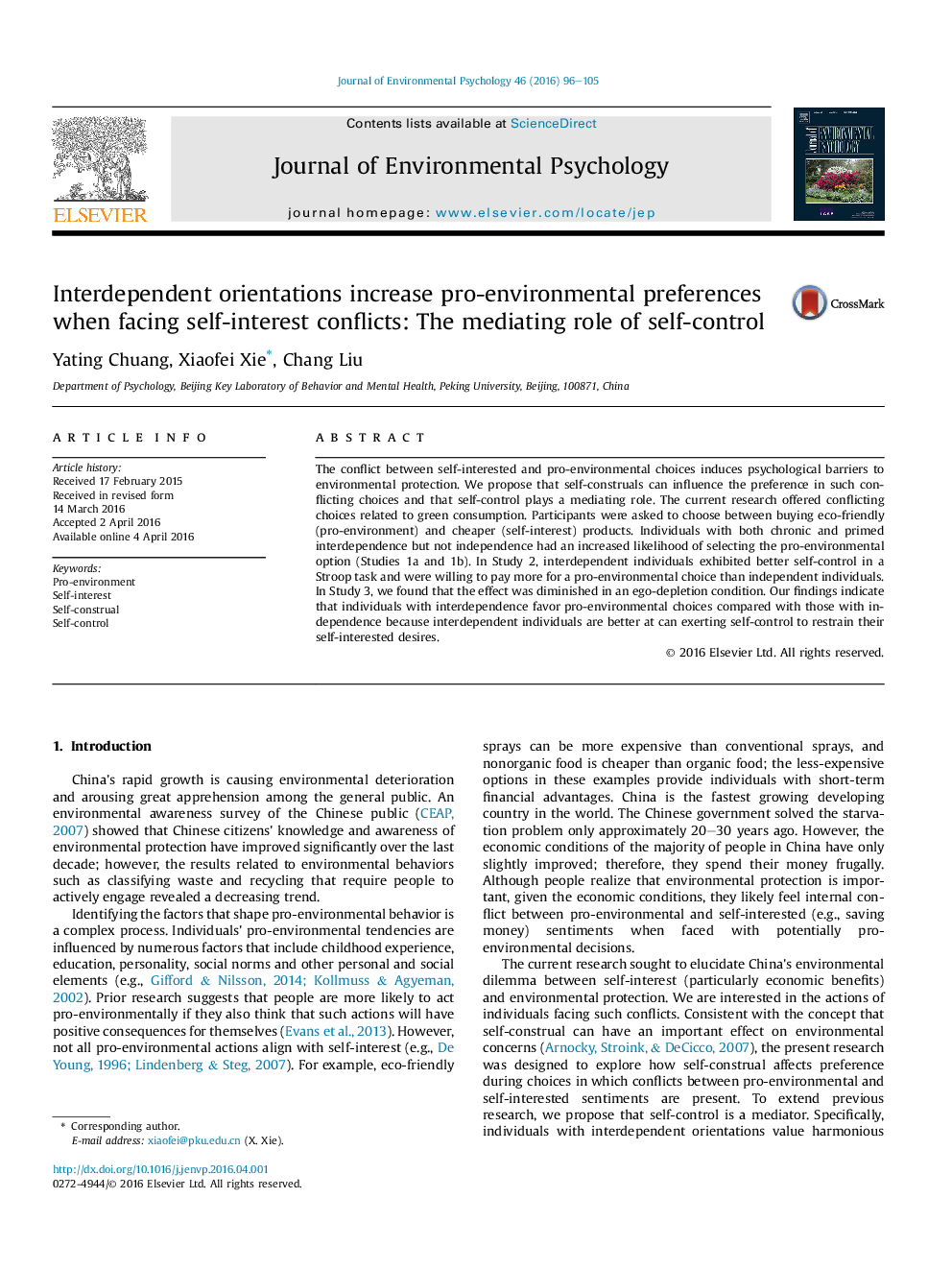| کد مقاله | کد نشریه | سال انتشار | مقاله انگلیسی | نسخه تمام متن |
|---|---|---|---|---|
| 885571 | 1471748 | 2016 | 10 صفحه PDF | دانلود رایگان |
• Faced with conflicts between pro-environmental and self-interested goals, individuals' self-construals affect their decision preferences.
• Interdependent orientations, whether chronic or primed, favor pro-environmental choices to a greater extent than independent orientations do.
• The mediating factor: Interdependent people exhibit better self-control ability to restrain self-interested desires than independent people.
The conflict between self-interested and pro-environmental choices induces psychological barriers to environmental protection. We propose that self-construals can influence the preference in such conflicting choices and that self-control plays a mediating role. The current research offered conflicting choices related to green consumption. Participants were asked to choose between buying eco-friendly (pro-environment) and cheaper (self-interest) products. Individuals with both chronic and primed interdependence but not independence had an increased likelihood of selecting the pro-environmental option (Studies 1a and 1b). In Study 2, interdependent individuals exhibited better self-control in a Stroop task and were willing to pay more for a pro-environmental choice than independent individuals. In Study 3, we found that the effect was diminished in an ego-depletion condition. Our findings indicate that individuals with interdependence favor pro-environmental choices compared with those with independence because interdependent individuals are better at can exerting self-control to restrain their self-interested desires.
Journal: Journal of Environmental Psychology - Volume 46, June 2016, Pages 96–105
